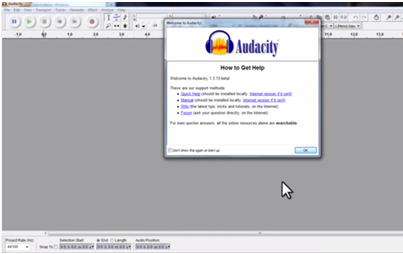

Metadata in imported MP2 and MP3 files except for the default Metadata Editor tags ("Artist Name", "Track Title", "Album Title", "Track Number", "Year", "Genre" and "Comments") will be exported as a "custom" ID3 frame.Some audio formats supported by the optional FFmpeg library may not export complete metadata.If using iTunes, you can export to AIFF as an alternative lossless format with metadata support. Few audio programs or players are able to read WAV metadata, and Audacity can only export WAV metadata for "Artist Name", "Track Title", "Year", "Comments", "Copyright" and "Software".Metadata is well supported in many audio formats, especially the ID3 tags used by MP3, but not well supported in WAV. When you export a file, by default Metadata Editor pops up where you can add, delete or change embedded information about the file. Why do my exported files not include the metadata, like Album Artist or Genre? See Importing Audio and the File Export Dialog for more help with importing and exporting. You can export to iTunes by exporting to any location on your computer then add the file to the iTunes library. FFmpeg will also import audio from most video files or DVDs that are not DRM-protected. Audio files that are DRM-protected to work only in particular software cannot be imported. You can install the optional FFmpeg library to import and export a much larger range of audio formats including AC3, AMR(NB), M4A, MP4 and WMA (on Mac only, Audacity can import unprotected M4A, MP4 and MOV files without FFmpeg). MP3 can be imported using Audacity as shipped, but to export as MP3 you must install the optional LAME encoder.Compressed audio formats: Ogg Vorbis, FLAC and MP2.Uncompressed audio formats: most WAV and AIFF files including all PCM variants.Can Audacity import or export formats like WMA, AC3 or iTunes files (M4A/MP4)?Īudacity as shipped can import or export the following audio formats:


 0 kommentar(er)
0 kommentar(er)
